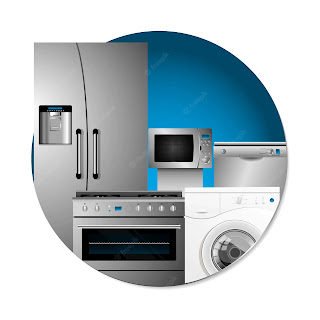Should You Repair Or Replace Your Household Appliances?
There are times when you are faced with a decision of whether or not to repair your appliances, or just replace them. However, there are also some considerations to make when deciding this. You have to consider the cost of the repair versus the cost of a new appliance. Also, you have to take into account the life expectancy of the appliance. It is also a good idea to clean your appliances to avoid odors.
Repairing vs. replacing
Whether to repair or replace an appliance is a big decision. There are many factors to consider such as the cost, the energy consumption, and the lifespan of the item.
The best way to decide is to get an estimate and compare the costs. Many companies will offer a free initial inspection. It is a good idea to ask for a written estimate with parts and labor included.
Choosing to fix versus replace can save you money and time. While fixing an appliance may seem like a good idea, if the cost of the repair is more than half of the cost of a replacement, it might be a better idea to go with the flow and replace it.
Cost of repair vs. price of new
The cost of repairing your old Home Appliance Repair Services is not that much more than replacing it. But you can often get better value for your money by replacing your appliances with new ones. In fact, you can save even more by buying an extended warranty.
Despite its pricier price tag, a new appliance will often have more features and capabilities than its predecessor. For example, a microwave may be more efficient than a toaster. It may also be more convenient to use. Depending on your needs, a washer and dryer can also save you a bundle.
To figure out which option is right for you, consider your needs and budget. You may be able to handle the job yourself or have it done by the pros. If you decide to DIY, consider the costs of materials, labor, and time.
Life expectancy of the appliance
There are a lot of different factors that affect the life expectancy of an appliance. For example, the frequency with which you use an appliance, and the care you give it, can greatly affect its lifespan.
Life expectancy is a very important factor to consider when you are shopping for a new appliance. If you don't know how old an appliance will be, you can't accurately determine if you will have to replace it in the future.
The average life expectancy of common household appliances is 10 years. This is according to a study commissioned by the German Environment Agency.
Other studies indicate that certain products have lifetimes based on their usage, application, or cycles. Some products like refrigerators have a lifespan of up to 18 years with proper maintenance. Washers, dishwashers, and gas dryers have a lifespan of up to 13 years.
Maintenance of household appliances
If you want to maintain your household appliances, it's best to follow some guidelines to help you stay on top of them. These tips can help you avoid costly repairs.
Investing in maintenance can save you money and reduce the environmental impact of your appliances. In fact, repairing your appliances can be more environmentally friendly than replacing them.
Whether you're dealing with a dryer that won't heat up or a dishwasher that doesn't drain, it's important to know what your options are. You can try to fix your appliance yourself or call a repair company.
The most common repair is to replace a part. Your owners' manual will be able to give you some information on the proper maintenance of your appliance.

.jpeg)
.jpeg)
Comments
Post a Comment